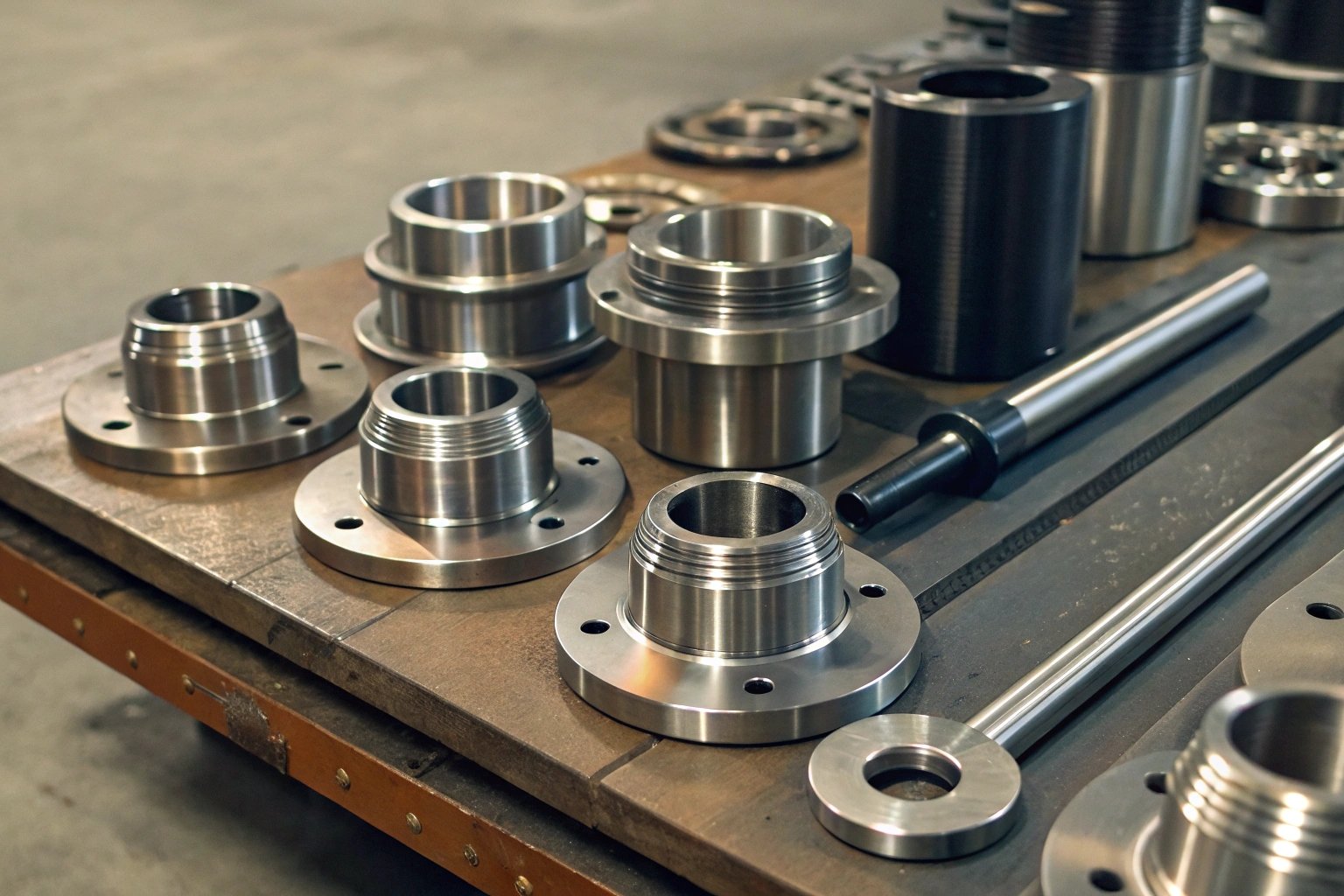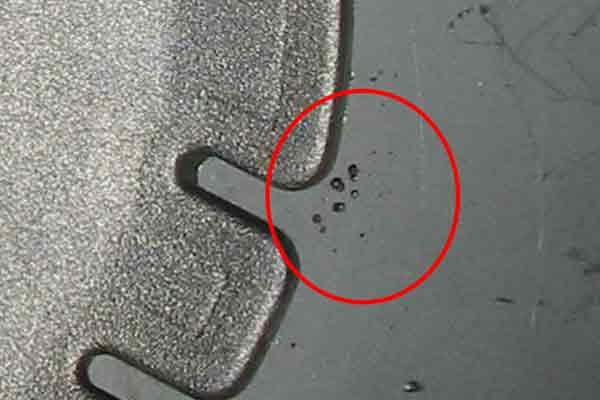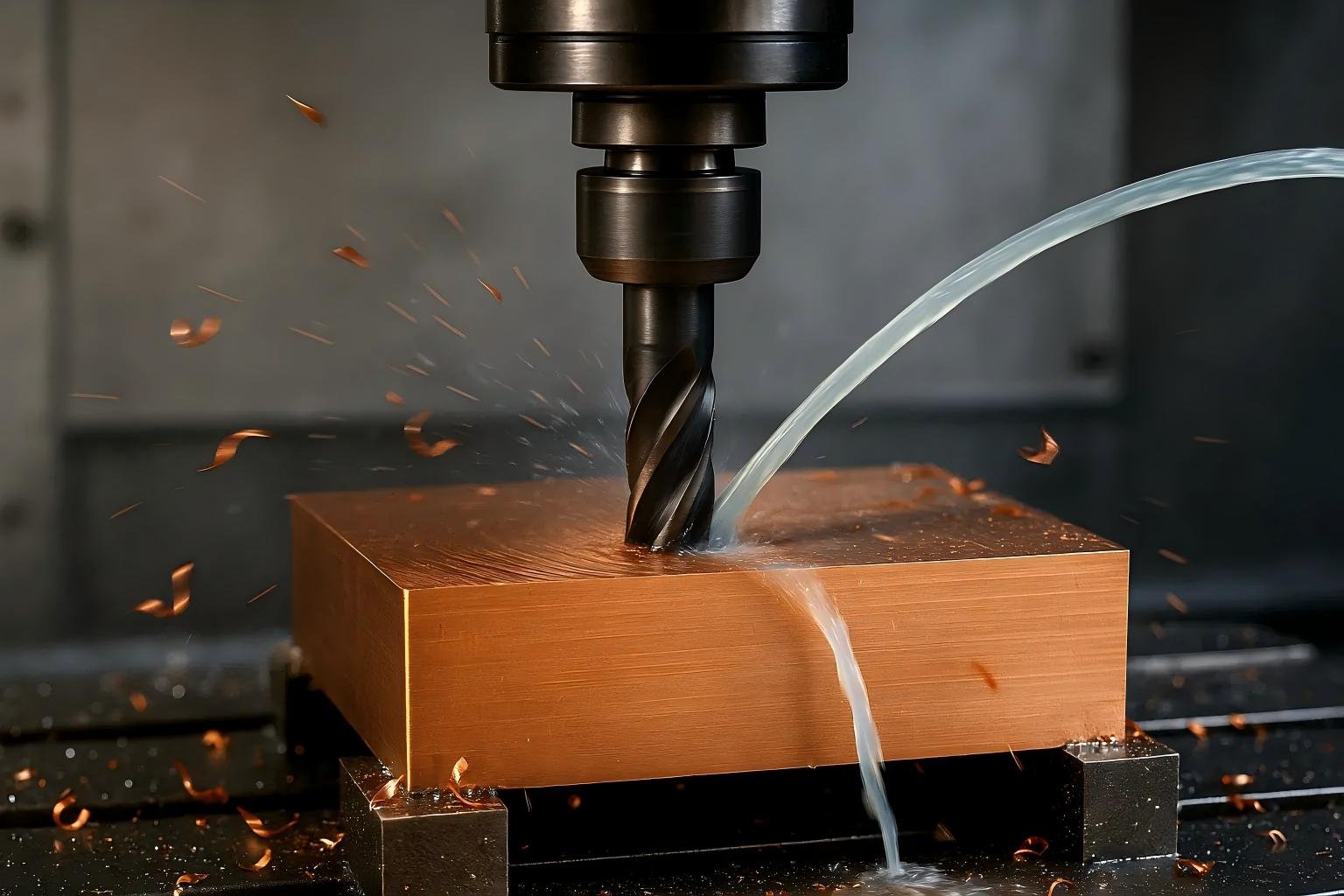Struggling with inconsistent parts? Facing tight deadlines with complex designs? Modern manufacturing demands precision that only advanced CNC machining1 can deliver, transforming raw materials into flawless components.
CNC machining has become indispensable because it combines computer precision with mechanical power. This technology enables manufacturers to produce complex parts with consistent accuracy, reduce human error, and maintain tight tolerances across thousands of identical components - something impossible with manual machining alone.

Modern CNC machining center in operation
As a manufacturer with years in the field, I've witnessed firsthand how CNC technology has revolutionized production capabilities. Let's explore why this technology has become the backbone of modern manufacturing and why choosing the right machining partner matters more than you might think.
How Does CNC Experience Enhance Your Projects?
Ever wonder why some manufactured parts fail while others last for decades? The difference often lies not in the machines, but in the expertise of those programming and operating them.
Experience in CNC machining translates directly to quality outcomes. A seasoned machinist understands how to optimize tool paths, select appropriate cutting parameters, and anticipate material behaviors - knowledge that comes only through years of hands-on work and problem-solving across thousands of projects.
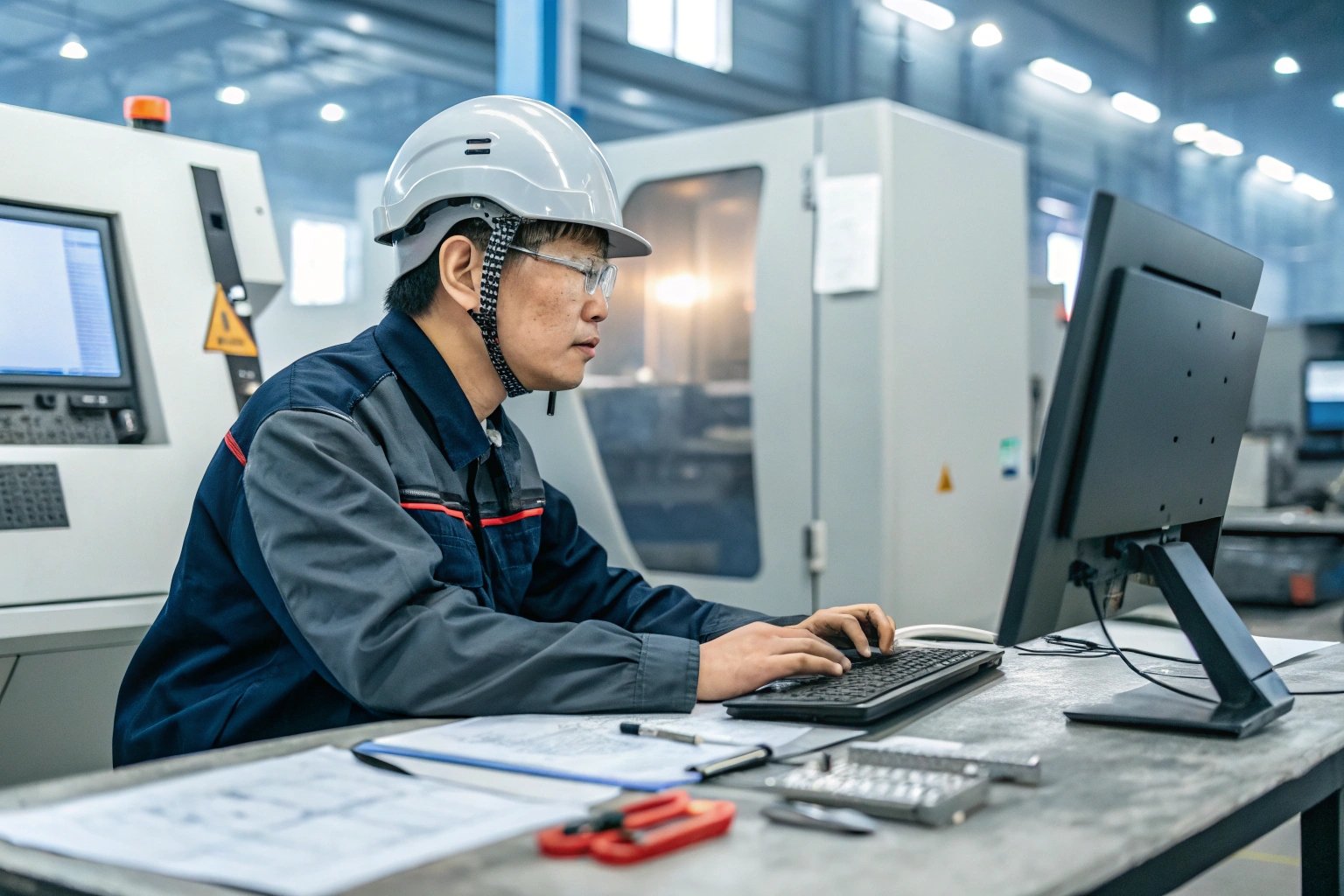
CNC programmer with decades of experience
In our Kunshan facility, where we've been handling precision components for over two decades, I've seen the dramatic difference experience makes. When working on critical vacuum chamber components last year, our senior machinists identified potential warping issues before they occurred, adjusting the cutting sequence to maintain dimensional stability throughout the process.
Experience also brings efficiency. Our veteran team can set up complex jobs in half the time required by less experienced operators. This efficiency extends beyond just operation – it includes faster troubleshooting, reduced material waste, and better finish quality. For clients with demanding projects, this depth of knowledge provides assurance that their parts will be produced correctly the first time.
The Value of Experience in Numbers
| Experience Factor | Impact on Project |
|---|---|
| Tool Selection | 30% reduction in machining time |
| Process Planning | 40% fewer iterations to achieve tolerance |
| Material Knowledge | 25% less waste from optimized approaches |
| Problem Anticipation | 60% reduction in production delays |
Which Industries Need Precision CNC Services Most?
Does your industry require components where failure isn't an option? Are your products subject to extreme conditions or regulatory scrutiny? Some sectors have absolutely zero margin for error.
Industries like aerospace, medical, semiconductor, and automotive rely critically on precision CNC services because their components must perform flawlessly under demanding conditions, often where human safety or million-dollar equipment is at stake.
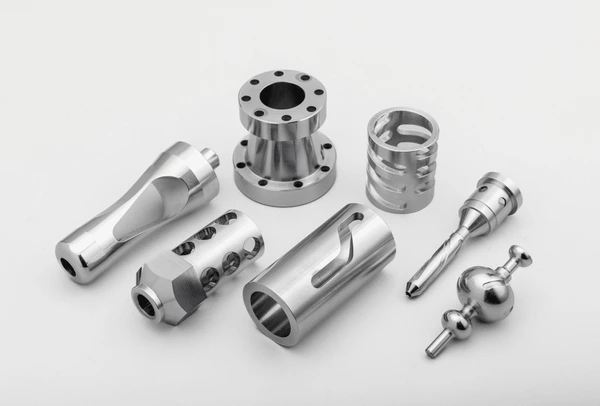
High-precision CNC parts for aerospace and medical applications
The semiconductor industry presents perhaps the most demanding precision requirements I've encountered. When producing vacuum chamber components, we regularly work to tolerances of ±0.005mm. Any deviation compromises the entire system's functionality. Similarly, the marine components we machine must withstand corrosive saltwater environments while maintaining structural integrity under significant stress.
Medical device manufacturers need parts with perfect surface finishes and biocompatibility. Our work with medical equipment makers requires rigorous documentation and validation - steps that are second nature to experienced CNC operators but challenging for newcomers. The aerospace industry demands both precision and specialized materials knowledge, often requiring complex alloys that behave unpredictably under conventional machining approaches.
Industry-Specific Precision Requirements
| Industry | Typical Tolerance | Key Challenges |
|---|---|---|
| Aerospace | ±0.01mm | Heat-resistant alloys, complex geometries |
| Medical | ±0.025mm | Biocompatibility, documentation |
| Semiconductor | ±0.005mm | Vacuum compatibility, particle-free surfaces |
| Automotive | ±0.02mm | High volume, cost efficiency |
| Marine | ±0.05mm | Corrosion resistance, structural integrity |
What Materials Excel in CNC Applications?
Have you ever wondered why some materials machine beautifully while others cause headaches? Material selection can make the difference between project success and costly failure.
The best materials for CNC machining balance machinability with application-specific properties. Aluminum alloys offer excellent machinability and strength-to-weight ratio, while stainless steels provide corrosion resistance but require more sophisticated cutting strategies due to work hardening.
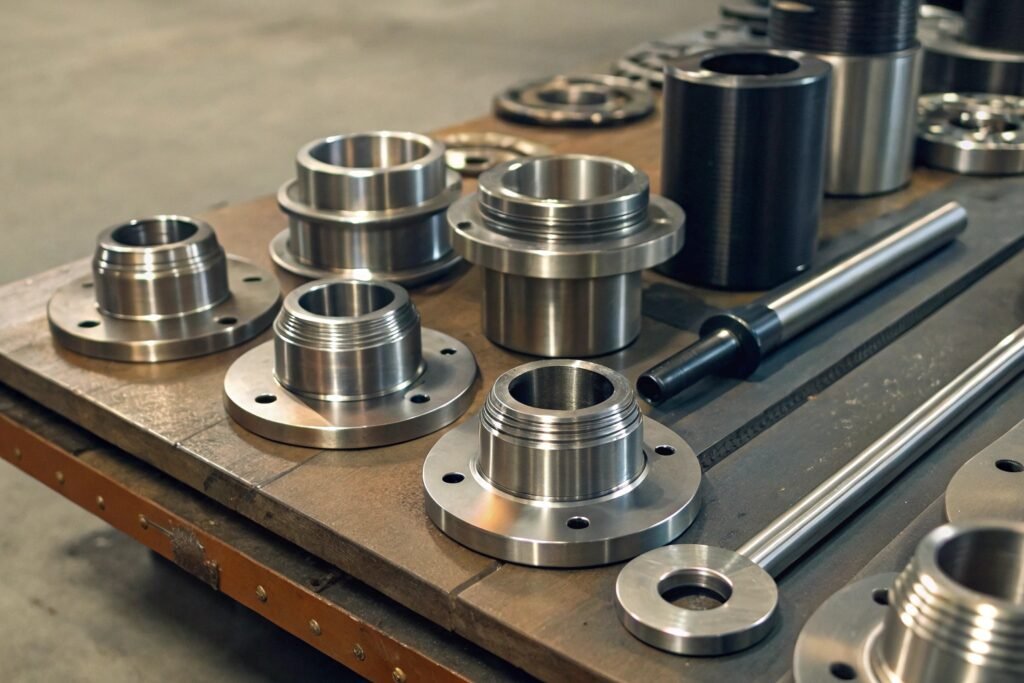
Different metal alloys prepared for precision machining
Through decades of material processing, I've developed a deep appreciation for how different materials respond to machining operations. Aluminum 6061, one of our most frequently processed materials, offers predictable behavior even at high cutting speeds. In contrast, working with titanium requires completely different approaches – slower speeds, rigid setups, and specialized cutting tools to manage heat buildup.
Material properties directly impact both the machining strategy and final component performance. For vacuum chamber applications, we often use 304 or 316L stainless steel for their excellent outgassing characteristics. However, these materials work-harden rapidly, requiring carefully planned cutting sequences. For sailboat components exposed to marine environments, we favor specialized aluminum alloys with superior corrosion resistance, but these demand particular attention to cutting fluid selection to avoid surface staining.
Material Performance Comparison
| Material | Machinability | Corrosion Resistance | Strength-to-Weight | Cost Factor |
|---|---|---|---|---|
| Aluminum 6061 | Excellent | Good | High | Low |
| 304 Stainless | Moderate | Excellent | Moderate | Medium |
| Titanium | Poor | Excellent | Very High | High |
| Brass | Excellent | Good | Moderate | Medium |
| Engineering Plastics | Good | Variable | Low | Low |
How Do Tight Tolerances Impact Critical Components?
Does a few thousandths of a millimeter really matter? In critical applications, these minute differences separate success from catastrophic failure.
Tight tolerances ensure components function as designed under all operating conditions. When parts must interface perfectly or withstand extreme pressures, temperatures, or stresses, precision becomes non-negotiable. The difference between ±0.01mm and ±0.05mm can determine whether a vacuum seal holds or fails.
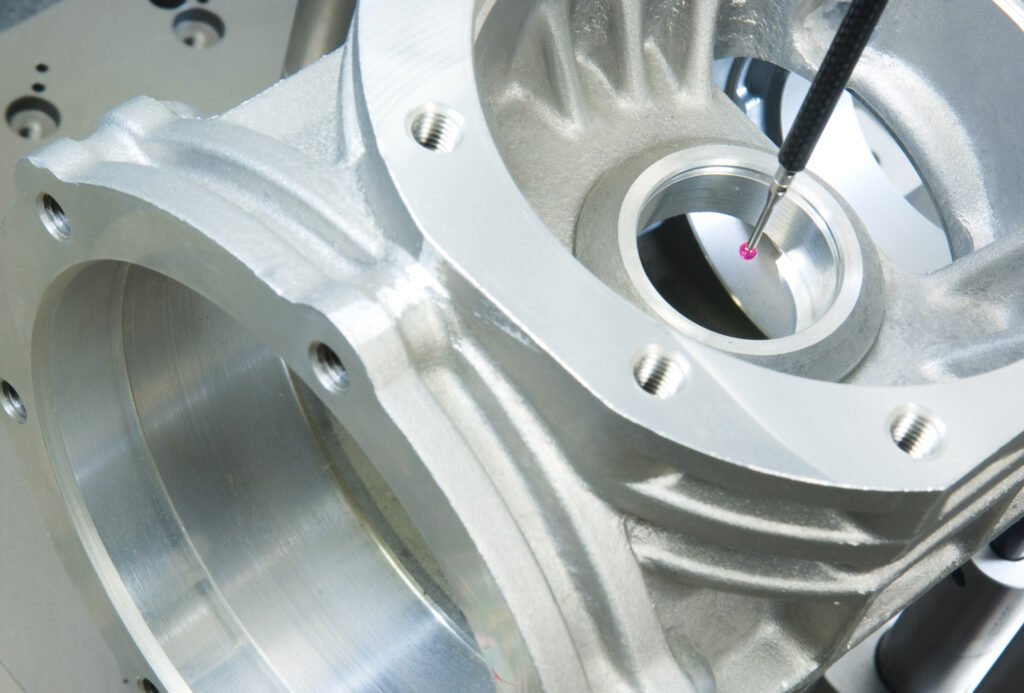
Quality control specialist using CMM to verify dimensions
In our factory, maintaining tight tolerances2 is a multi-faceted challenge we've mastered through rigorous process controls. Temperature-controlled manufacturing environments are essential—even a 5°C variation can cause enough thermal expansion to push dimensions out of spec on precision components. Our largest investments have been in measurement technology, with coordinate measuring machines accurate to 0.001mm.
A recent automotive project illustrates the critical nature of tight tolerances: fuel injection components with clearances of just 0.008mm. At this level of precision, factors like tool wear and material batch variation become significant concerns. Our solution involves regular in-process measurement and adaptive machining techniques that compensate for these variables in real-time.
Tolerance Categories and Applications
| Tolerance Class | Typical Range | Example Applications |
|---|---|---|
| Ultra-Precision | ±0.001-0.005mm | Optical components, gauge blocks |
| High Precision | ±0.005-0.02mm | Medical implants, fuel systems |
| Precision | ±0.02-0.05mm | Aerospace fasteners, engine components |
| Standard | ±0.05-0.1mm | General machinery, structural components |
| Commercial | >±0.1mm | Non-critical applications |
Why Choose Custom CNC for Global Manufacturing?
Are standard components limiting your product's potential? Is your supply chain vulnerable to disruptions? Custom CNC offers both design freedom and strategic security.
Custom CNC machining provides manufacturing flexibility unmatched by mass production methods. It allows companies to quickly iterate designs, produce complex geometries impossible with other methods, and maintain tight control over quality and intellectual property throughout the global supply chain.

International shipment of custom CNC components
The global manufacturing landscape has transformed dramatically during my career. Where companies once relied on standardized components to build products, today's competitive environment demands customization and optimization. Our Chinese facility now serves clients from Germany to California, providing specialized components that simply don't exist in catalogs.
This shift toward custom machining creates strategic advantages beyond just component performance. When a leading European sailboat manufacturer approached us about custom winch components, the initial driver was performance improvement. However, the relationship evolved to address supply chain resilience. By developing custom components with us, they reduced dependency on single-source suppliers and gained the ability to quickly modify designs as needs changed.
International standards compliance has become another critical factor in global custom manufacturing. Our adherence to ISO 9001 quality systems and industry-specific standards ensures components produced in our facility integrate seamlessly into global supply chains. The documentation and traceability we provide have become as valuable as the physical components themselves.
Benefits of Global Custom CNC Partnerships
| Benefit | Business Impact |
|---|---|
| Design Freedom | Enables product differentiation and optimization |
| Supply Chain Resilience | Reduces dependency on single sources |
| IP Protection | Controlled manufacturing of proprietary designs |
| Scalability | Ability to adjust production volumes as needed |
| Technical Partnership | Access to manufacturing expertise for design improvements |
Conclusion
CNC machining has transformed from simple automation into the backbone of precision manufacturing. With over two decades of experience, we've witnessed how material knowledge, industry expertise, and precision tolerances create components that perform flawlessly in the most demanding applications worldwide.

